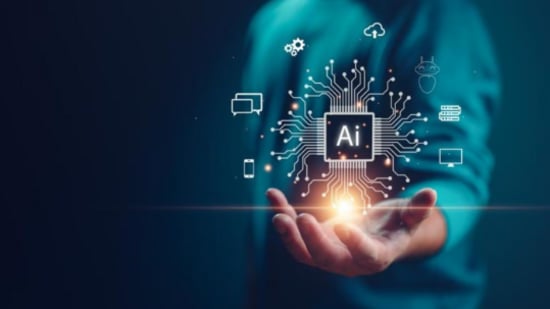How AI and humans will co-evolve
This article is authored by Kunal Nandwani, co-founder and CEO, uTrade Solutions.
In envisioning a future where Artificial Intelligence (AI) and humans co-evolve, we are not just speculating about science fiction scenarios but rather discussing imminent realities that could redefine our society, economic systems, and personal identities. The symbiotic relationship between AI and humans points toward a future where collaboration and interaction between human intelligence and artificial systems become seamlessly integrated into daily life, the process of which we can already see as having started.

The first step towards this co-evolution is already visible through the integration of AI in various aspects of human life. From virtual assistants that manage our schedules to sophisticated algorithms that suggest what to watch or buy, AI has begun to augment our decision-making processes and personal preferences. These interactions are poised to become deeper and more complex, as AI systems learn to adapt and respond to individual human behaviour and needs more effectively.
One of the most profound impacts of AI on human evolution could be in enhancing our cognitive capacities. Brain-computer interfaces (BCIs) are being developed to directly link human brains to computers, enabling not just enhanced mental capabilities, such as improved memory or decision-making skills, but also a direct communication pathway between humans and machines. This could lead to a new form of intelligence, a hybrid of human emotional depth and machine precision, unlocking potentials in creativity, analysis, and problem-solving that are currently unimaginable.
As AI technologies advance, they are likely to become more personalised. Future AI systems could act as personalised agents, understanding individual user needs and acting accordingly. This could range from managing health and diet based on personal genetics and lifestyle to customising learning and career development programmes that adapt to an individual’s pace and learning style. Such personalisation would foster a unique bond between humans and AI, with AI systems functioning as both tools and companions, deeply integrated into the fabric of individual human life.
However, this deep integration brings forth significant ethical implications. As AI begins to influence daily decisions, there arises a concern about the loss of autonomy and the potential for manipulation. The ability of AI to not just suggest but also subtly influence human thoughts and actions with personalised data raises questions about privacy and consent. Moreover, as humans become more reliant on AI for cognitive tasks, there might be a shift in what is considered essential human knowledge, possibly leading to a re-evaluation of educational goals and personal development strategies.
The co-evolution of AI and humans will also significantly impact work and social structures. With robots and AI systems taking over routine and even complex tasks, human roles in workplaces will shift towards more creative, managerial, or empathetic roles that machines cannot easily replicate. This could lead to a significant transformation in job markets and necessitate a rethinking of economic systems, perhaps moving towards models that prioritise well-being and creative engagement over productivity and efficiency.
As humans adapt to a life integrated with AI, future generations might develop different cognitive and social skills, emphasising traits that benefit from the symbiotic relationship, such as adaptability, problem-solving, and interdisciplinary knowledge.
The future of AI and human co-evolution holds tremendous potential but also significant challenges. It promises a world where human capabilities are enhanced beyond our current limitations, creating possibilities for higher levels of understanding and new forms of creativity. However, it also compels us to confront critical ethical questions and to carefully consider how we design and implement AI technologies. The balance we achieve between these opportunities and challenges will define the character of our shared future with AI, shaping not only what it means to be human but also the values and priorities of our society.
This article is authored by Kunal Nandwani, co-founder and CEO, uTrade Solutions.





